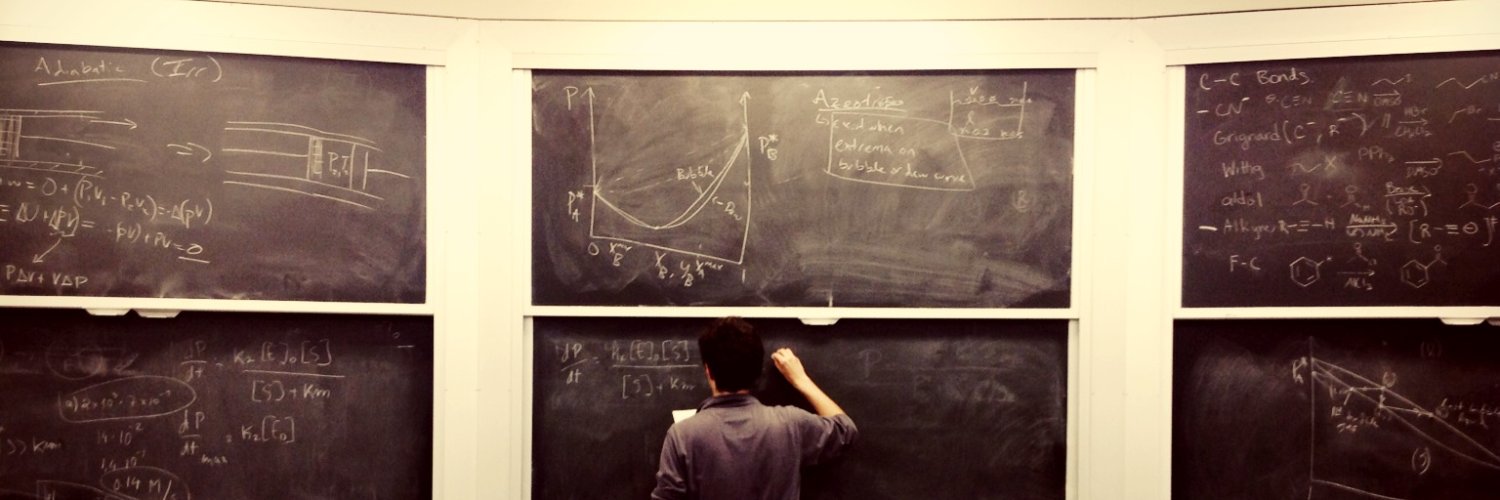
Luis Batalha 🇵🇹🇺🇸
@luismbat
Physicist. Founded @amplemarket, @fermatslibrary, @orankl_inc
Imagine if Euclid had to get funding from Greek aristocrats to do research on Prime Numbers and justified it by claiming that in 2000 years primes would be important for cryptography, a secure Internet and payments.
"Programming needs to be learn in part by the act of typing" @dhh. That really hit home. In Physics, one of the best ways to learn a concept is to code it into a simulation. Feynman said it best: "What I cannot create, I do not understand"
"I use AI in a separate window. I don't enjoy Cursor or Windsurf, I can literally feel competence draining out of my fingers." @dhh, the legendary programmer and creator of Ruby on Rails has the most beautiful and philosophical idea about what AI takes away from programmers.
AI beating humans at math olympiads is the natural sequel to conquering games. Some math problems are games: find the proof = save the princess. Physics is messier. Sometimes the real challenge is picking the right board. Does your model even match reality?
Relationship Between 2025 International Mathematical Olympiad Scores and National GDP

.@Strava's gamification is so good, it makes it hard to stop running - even when you're injured
Tao’s key point on recent AI IMO results: Without tightly controlled, standardized test conditions, we can’t meaningfully compare AI models to humans. Format changes like time, collaboration, filtering outputs can inflate scores by orders of magnitude.
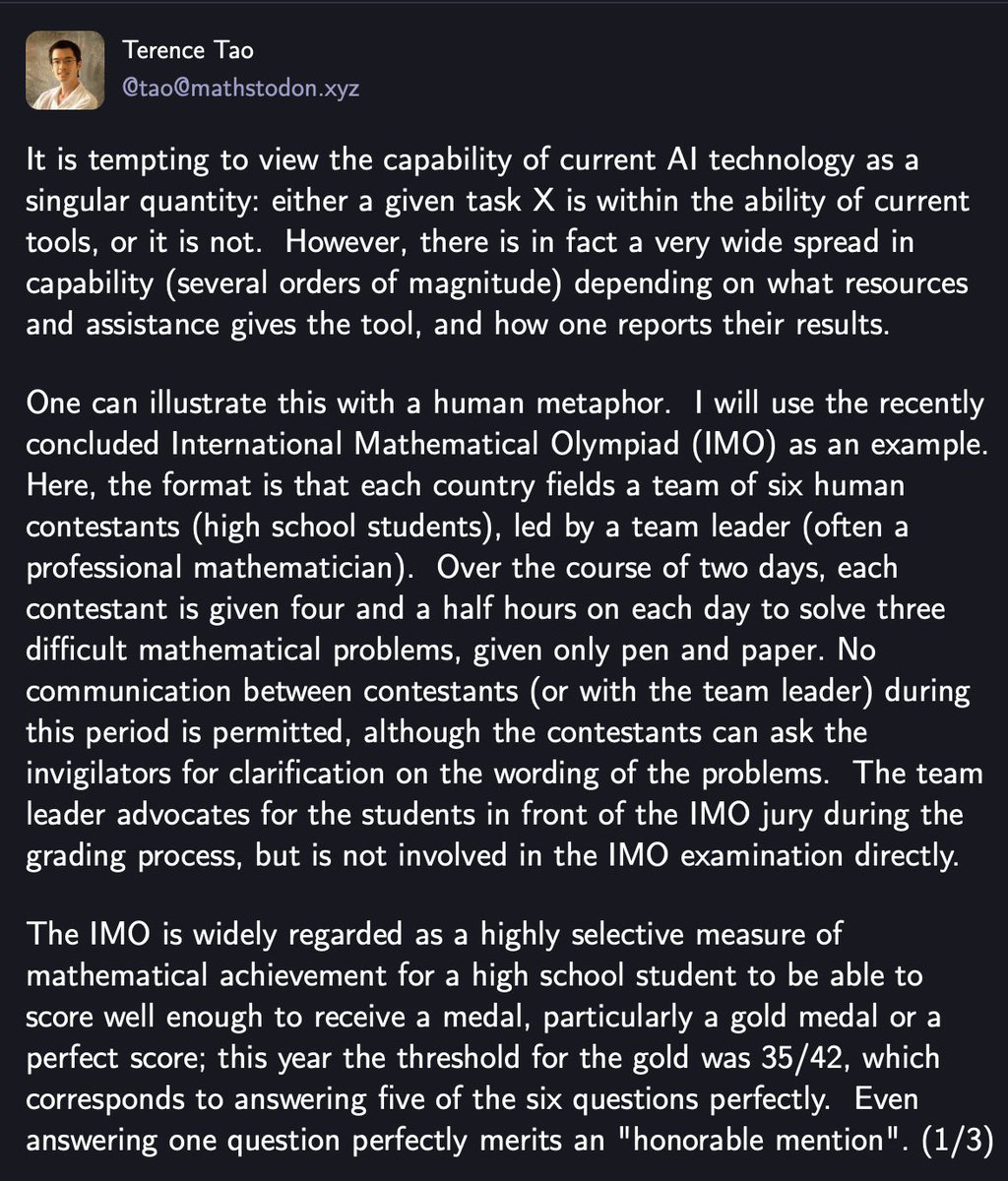
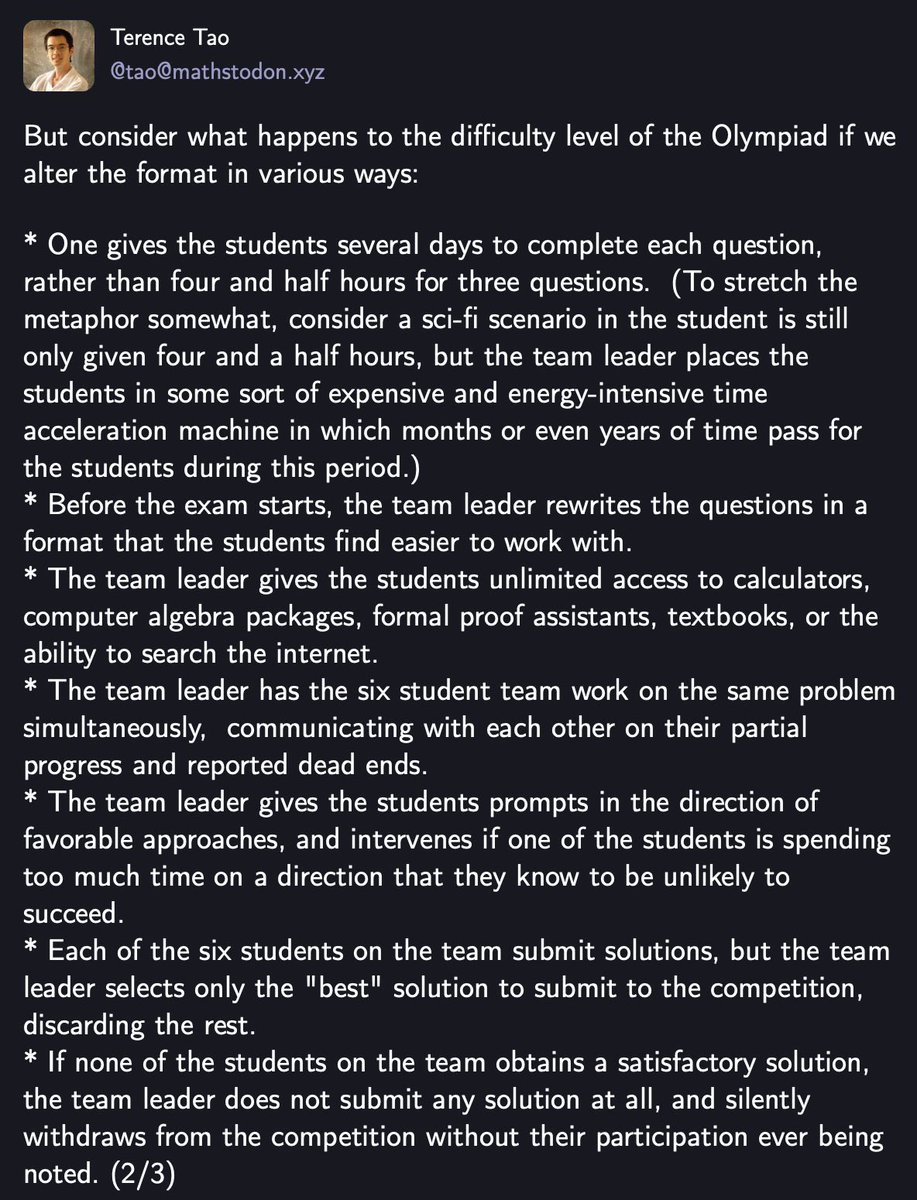
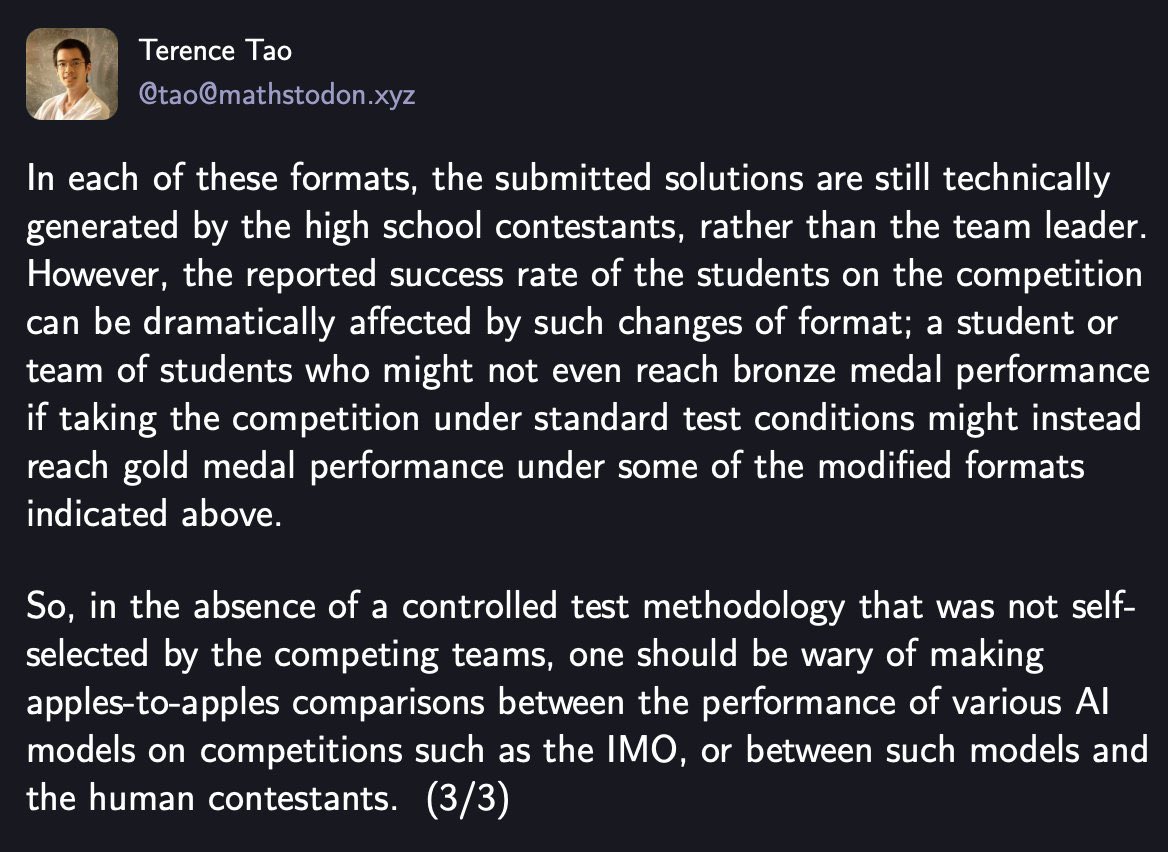
Grok in context is great for triggering curiosity rabbit holes from X posts. Like: How long could a straw be on Mars? Just 16.2 cm - any longer and you can’t sip!
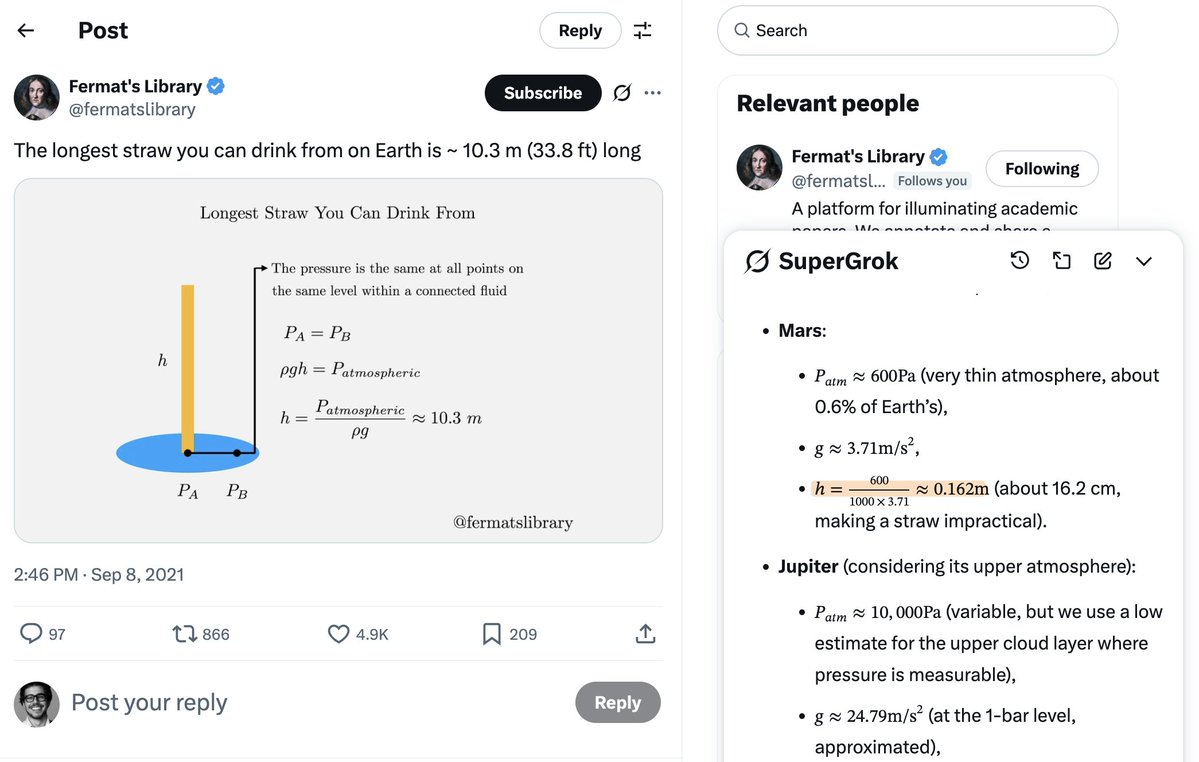
3,295 authors on Gemini 2.5 paper. Just ~1,800 shy of the Higgs discovery paper's 5,154 - the record-holder for most co-authors. The rise of AI isn’t just technological, it’s transforming how scientific collaboration is done, at scale.
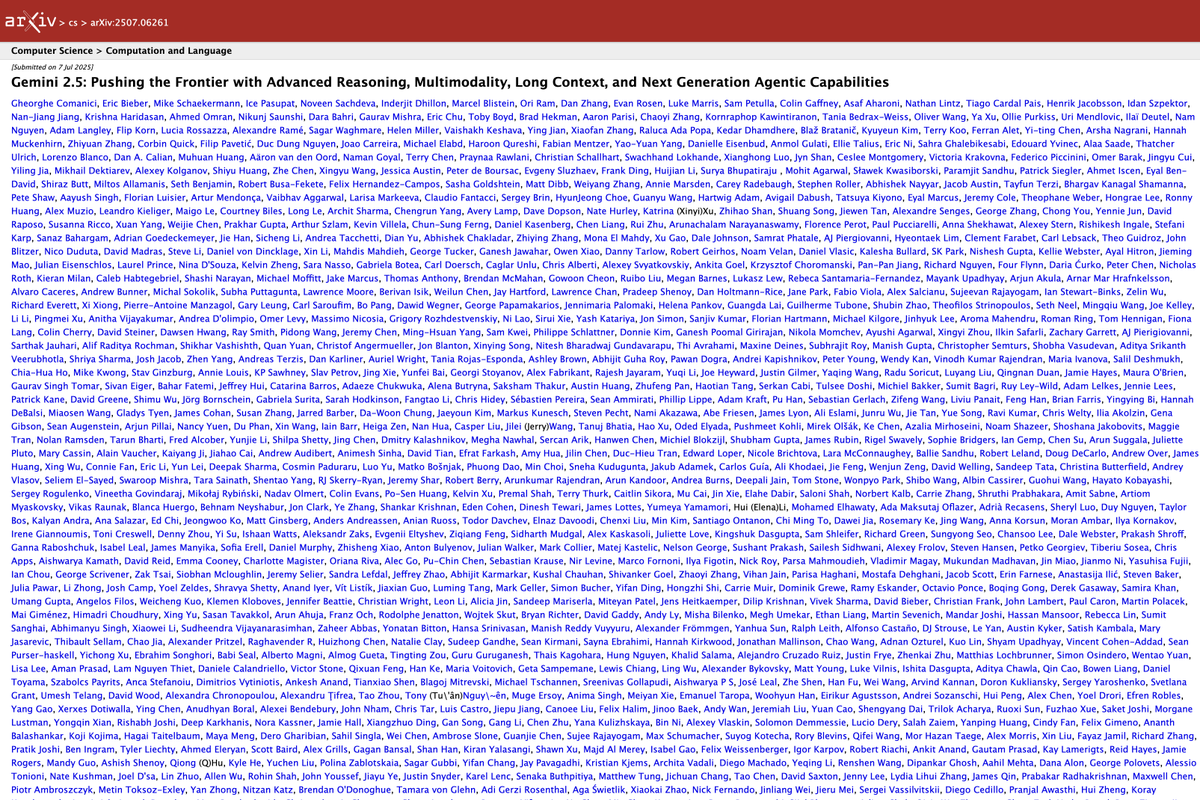
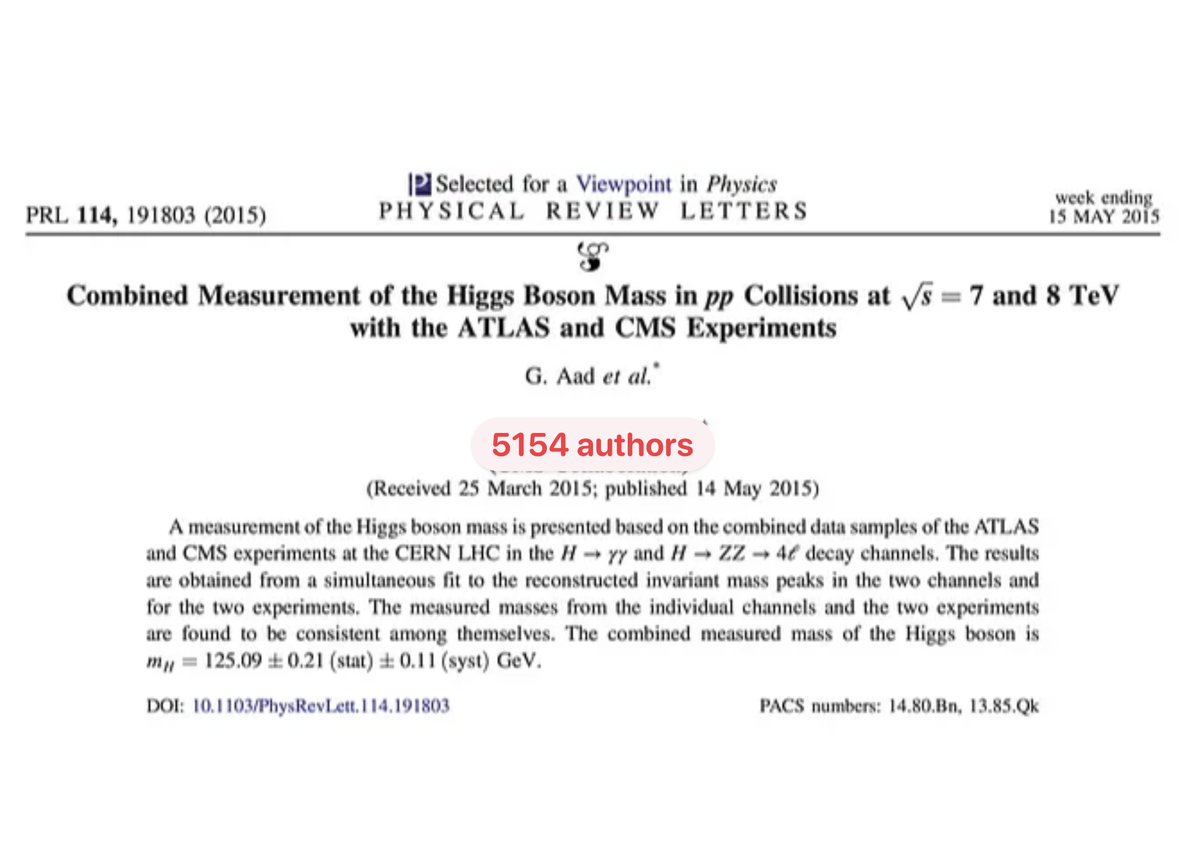
There are people walking around literally powered by nuclear energy. Cyberpunk is real.
Over the years, pacemakers have used various power sources — including plutonium-238 Nuclear pacemakers could last over 40 years, compared to 5–10 for conventional ones. A small number of people in the U.S. still have them
Just tested Grok 4’s physics simulation skills. Uploaded a screenshot from SpaceX’s keynote showing Starship’s Earth→Mars orbit. Asked it to simulate the return trip and it nailed it on the 1st try.

Imagine an alien watching Earth from the Moon with a telescope. For thousands of years: no signs of humans - just forests, oceans, clouds. Then around 1700 (~300 years ago), cities, roads, and lights appear. Exponential progress is invisible... until it’s not.
Imagine being a brilliant mathematician and still avoiding the most important problems because your career depends on publishing frequent papers, not solving the biggest mysteries in the world. That's why you can't do things like this in academia.
Deepmind has been secretly working to solve Navier-Stokes for 3 years now ? ‘ so far been carried out with complete discretion, although the chief of Google DeepMind, Demis Hassabis, let slip in a January interview that they are “close to solving a Millennium Prize Problem” ‘
Google had everything: the transformer, massive compute, access to data, even Google Books - yet OpenAI beat them to the LLM gold rush. Having the pieces isn't the same as playing the game.
Anthropic purchased millions of physical print books to digitally scan them for Claude
Problems like Fermat's Last Theorem or the Riemann Hypothesis are the Beatles hits of math: huge crowd-pleasers that are easy to grasp but really hard to master.
Feyntron.com is actually one of my favorite domains I own :)
In 1960, Feynman spent a year at the Caltech Biology lab and made an important discovery: intragenic supression - when the expression of a gene which has been knocked out by a mutation is restored by a 2nd mutation in the same gene. These revertants were referred to as Feyntrons
We need boots on Mars before the last pair of Moon boots is gone
List of people that have walked on the Moon: Neil Armstrong 🇺🇸🪦 Buzz Aldrin 🇺🇸 95 yo Pete Conrad 🇺🇸🪦 Alan Bean 🇺🇸🪦 Alan Shepard 🇺🇸🪦 Edgar Mitchell 🇺🇸🪦 David Scott 🇺🇸 93 yo James Irwin 🇺🇸🪦 John Young 🇺🇸🪦 Charles Duke 🇺🇸 89 yo Eugene Cernan 🇺🇸🪦 Harrison Schmitt 🇺🇸 89 yo
Almost none of the work that led to the most recent Fields Medals involved computers - it was all "human-generated". Interesting to see Terence Tao's take on how AI might change that in future editions.
One underrated perk of taking differential calculus in college: mastering the art of drawing donuts effortlessly for the rest of your life.
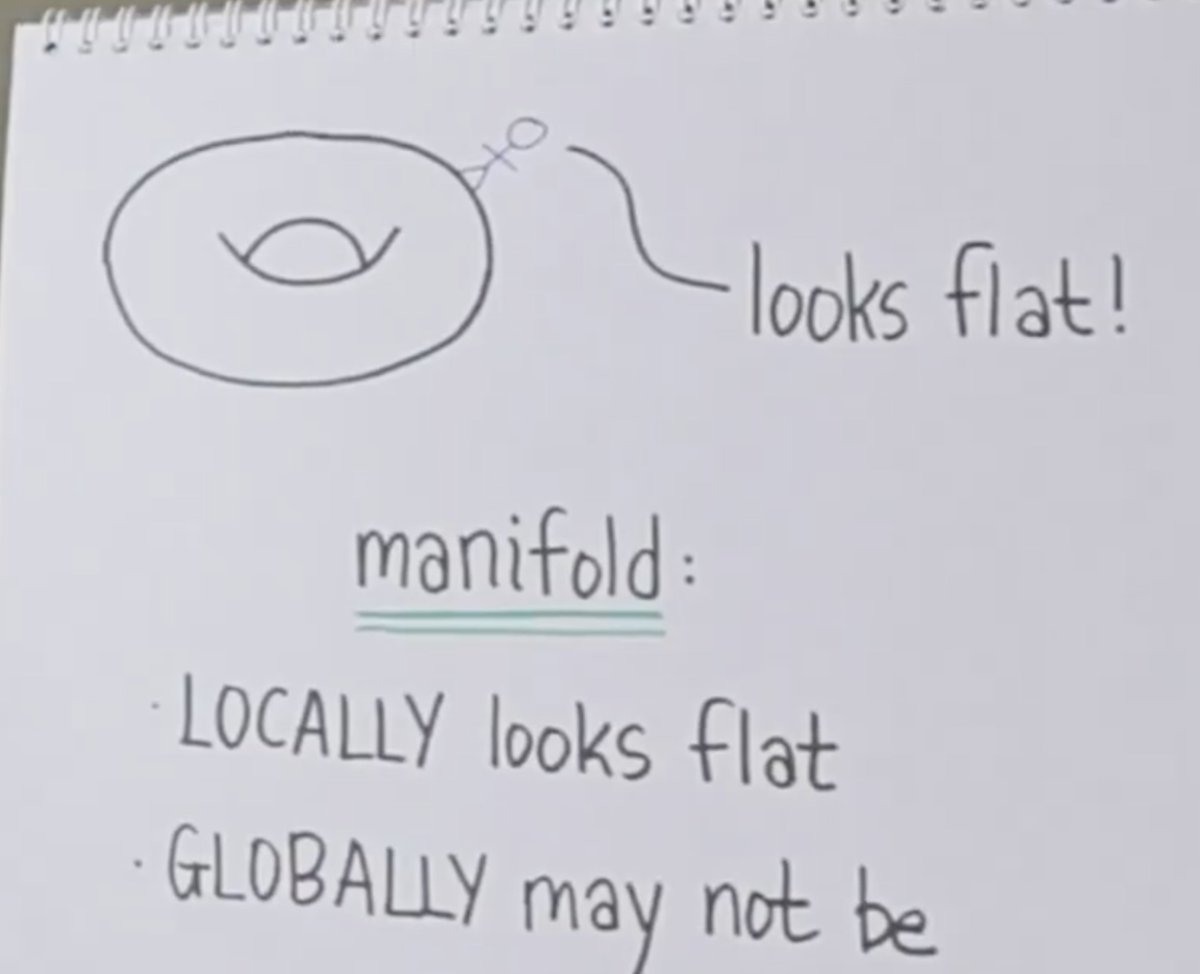
Imagine a real-time MRI of Earth’s magnetic field - powered by Starlink. With thousands of satellites equipped with magnetometers, we could: - Study how solar activity shapes Earth’s magnetosphere - Detect magnetic field anomalies before earthquakes
The number of satellites launched into space has grown incredibly fast
Every time I see an em dash "—" in a book now, my brain goes: “ah yes, clearly AI-generated”, even if the book was written in 1960...
